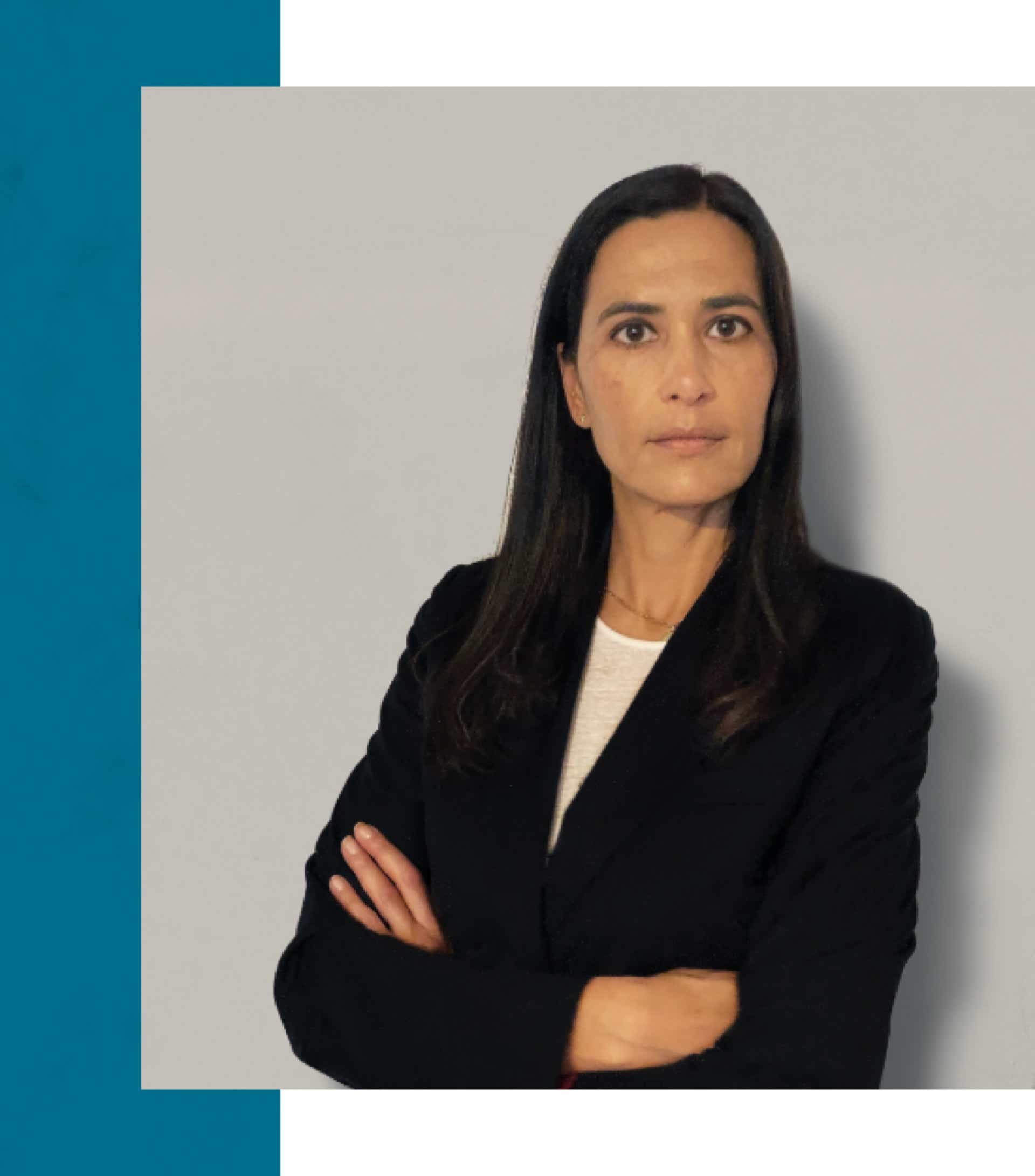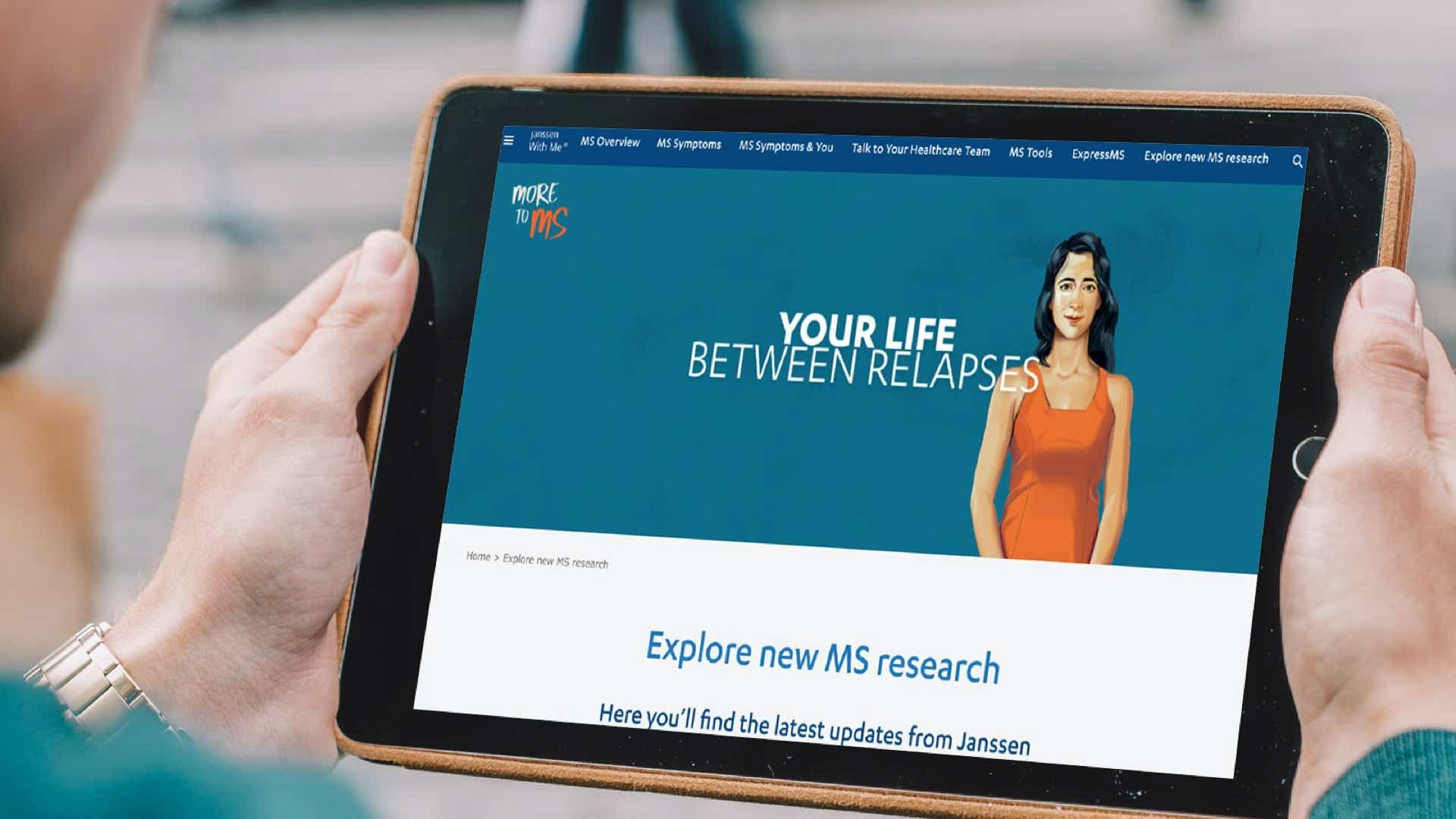Explore new MS research

Explore new MS research
Here you’ll find the latest updates from Janssen on MS-related research – beyond the lab.
The MS landscape is constantly changing and evolving as more and more scientific research is conducted. An important element of this is research into patient involvement in the management of their MS. This page is dedicated to sharing this kind of research, that looks at the bigger picture of MS care, management and patient empowerment and involvement.

How empowered are people living with MS when it comes to their treatment decisions?
Over the last decade, many new MS treatments have become available.1 This is great news as it means that each person living with MS can receive a treatment more personalised to their own individual needs; however, it does sometimes make the decision of which treatment to take a tricky one. It’s important that people living with MS play a role in this decision, along with their healthcare team – but do they feel confident or comfortable enough to do so?
This month, we sat down with Nidia Afonso, EMEA Compound Market Access Leader here at Janssen, to discuss a piece of research she co-authored, exploring how empowered people living with MS feel when it comes to making treatment choices.
The study investigated patient attitudes towards their treatment choices, whether they were directly involved in the decision-making process with their physician, and even how in different parts of the world, different levels of empowerment exist.2
Keep reading to hear the results, and their implications, first-hand from Nidia.
A conversation with Nidia Afonso, the Compound Market Access Leader for EMEA
Q. Why is it important to understand the degree to which MS patients are empowered in treatment decisions and attitudes regarding their role in MS treatment choice?
Thanks to great advances over the last 10 years, physicians and patients now have access to a wide variety of medications, which differ in their expected outcomes, routes of administration, flexibility in family planning and risk of side effects.1
This means that treatment can be tailored to the specific needs of each patient. It is therefore more important than ever that patients feel empowered to discuss their individualised treatment regime with their clinical team. Empowering patients in these decisions is crucial and may lead to improved patient satisfaction and adherence to treatment.
Q. What did this study show?
Our study found that patients with MS are generally interested and engaged in their treatment decision making alongside their prescribing physicians. Just over one in three (35%) of the 975 patients who responded reported that they were actively driving treatment decisions.2
We also found that, in general, patients in the US take a significantly more active role in their treatment decisions compared with those in the EU.2 This involvement is pivotal for patients who said they would proactively discuss a treatment change if they believed it was necessary.2
This finding may be due to cultural differences in the physician-patient relationship between the European area and the US, suggesting that more patients in the EU expect their doctors to take the lead in treatment decisions.
Q. Were you surprised by these findings?
Yes, I was not aware that so many patients – almost two in three (62%) – would proactively discuss a change of treatment with their doctor if they did not feel they were being prescribed the correct treatment for them.2
Also, the fact that more than a third of patients (38%) would actively look to switch physicians if they thought the physician was not open to trying new treatments shows that patients are taking a very active role in shaping their disease management.2
Q. How will these results be published and shared with the MS community?
I’m proud that the results were presented at the congress of the European Committee for Treatment and Research in Multiple Sclerosis – ECTRIMS for short – which is the world’s largest annual international congress for MS. It brought together thousands of attendees from across the world, all united by the common goal of achieving positive change for patients living with MS.

Nidia Afonso, Compound Market Access Leader for Europe, Middle East & Africa (EMEA) at Janssen
Q. What are the implications of these findings in the wider context of patient empowerment in MS?
Recent findings from other studies have shown that patients who engage in their own healthcare receive better care and have better health outcomes, as well as incurring lower healthcare-related costs.3 This may be because patients who are informed about their condition are often more confident, better able to engage in meaningful discussions about their healthcare and are more likely to adopt positive behaviours.
Q. Why did Janssen conduct this study and what can the pharmaceutical industry do to support improved patient empowerment in treatment decisions?
We conducted this research to better understand the patient role in decision making about their MS treatment and their expectations towards the patient-doctor relationship. I think Janssen and other pharmaceutical companies can support patients by providing informative resources to aid them in decision making regarding their own health.
Q. If you had one key takeaway message for the readers of MoreToMS what would it be?
The strong body of evidence that patient involvement in treatment decisions leads to better outcomes highlights just how important patient empowerment really is.3 So, while it’s great news that our study shows that many people do already feel empowered to have a voice in their treatment journey,2 it’s really important to remember you can play a role and become an advocate for your own health. After all, our health is the most important thing we have.
We will update this page with relevant research, so if you found the above interesting then make sure to check back in again soon!

Explore MoreToMS and find resources to support you.
Thank you for Visiting Explore New MS Research on MoreToMS!
MoreToMS contains a wide range of other useful information about managing MS, as well as how to effectively communicate the impact of your MS with others. Explore the site further or click here to see what other downloadable resources are available to support you in your MS journey.

Download the ExpressMS app to start more meaningful conversations
.png?width=751&height=563&format=png&quality=60)
.png?width=751&height=563&format=png&quality=60)

